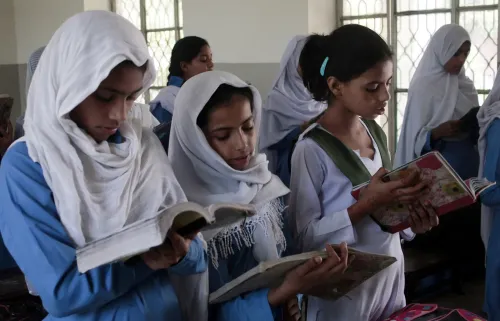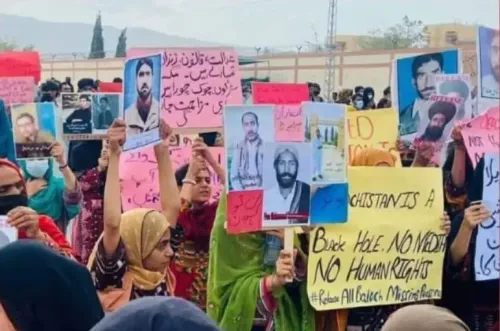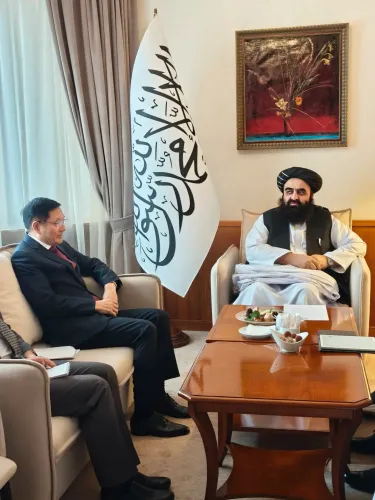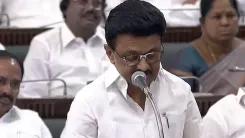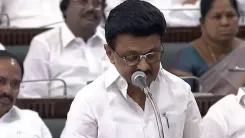Yunus Appeals to Trump for Delay on Tariff Measures Against Bangladesh
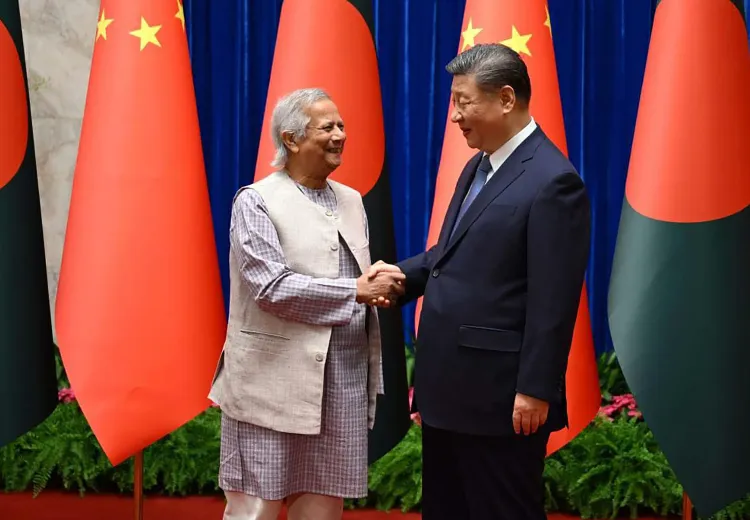
Synopsis
Key Takeaways
- Muhammad Yunus appeals to Trump for a tariff delay.
- Bangladesh's tariffs increased to 37%.
- Exports to the US valued at $8.4 billion.
- Political instability affecting trade.
- Protests among garment workers intensifying.
Dhaka, April 7 (NationPress) Muhammad Yunus, the Chief Advisor of Bangladesh's interim government, has addressed a letter to US President Donald Trump on Monday, urging him to delay the implementation of reciprocal tariff measures on the nation’s exports to the United States for a period of three months.
The Trump administration has increased tariffs on Bangladeshi products from an average of 15 percent to 37 percent. A significant portion of Bangladesh's principal export, Ready-Made Garments (RMG), is directed towards the US, with annual export values reaching approximately $8.4 billion.
Currently, the average tariff on American goods is 74 percent. However, the Trump administration has applied a 50 percent discount on this rate, imposing a 37 percent tariff specifically for Bangladesh, as reported by local media.
As global stock markets experienced a downturn on Monday, Trump defended his contentious tariff policies, downplaying concerns regarding their economic repercussions. He asserted that world leaders are “eager to negotiate” on the reciprocal tariffs.
Meanwhile, Bangladesh's economy has been on a downward trajectory since the interim government assumed power in August 2024.
The nation’s business sector is grappling with a substantial liquidity crisis, leading to the shutdown of numerous commercial and industrial establishments. Political instability in Bangladesh has significantly affected international trade, compelling global retailers to seek alternative partners. Entrepreneurs in Bangladesh are encountering challenges in sourcing raw materials vital for their operations.
Moreover, widespread protests and strikes by garment factory workers over unpaid wages and worsening working conditions have engulfed the nation. Reports indicate that ongoing protests have resulted in the closure of many factories, with several workers either losing their lives or sustaining serious injuries during demonstrations.
A report from the prominent Bengali daily Prothom Alo highlighted that key economic indicators—including revenue collection, inflation, unemployment, private investments, capital equipment imports, the capital market, and foreign investment—are not exhibiting positive trends.
The Dhaka-based Centre for Policy Dialogue (CPD) has asserted that the country will struggle to attract both domestic and foreign investments without political and institutional stability.


